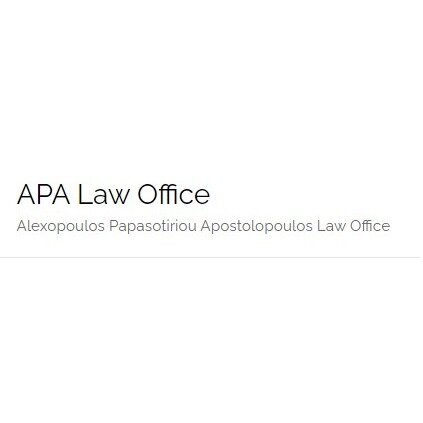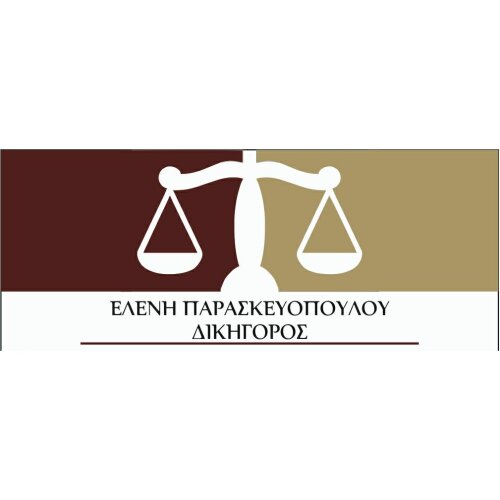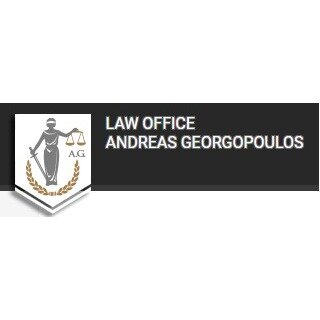Best Renewable & Alternative Energy Lawyers in Pátrai
Share your needs with us, get contacted by law firms.
Free. Takes 2 min.
List of the best lawyers in Pátrai, Greece
About Renewable & Alternative Energy Law in Pátrai, Greece
Pátrai (also known as Patras) is one of Greece's major cities and plays an increasingly important role in the transition to renewable and alternative energy. As the demand for sustainable energy sources rises, legal frameworks governing solar, wind, hydroelectric, and biomass projects grow more complex. Greek national laws are the cornerstone, but regional regulations and municipal planning in Pátrai also influence energy initiatives. Whether you are interested in a small-scale solar installation at your home or a large-scale wind farm, understanding the relevant legal landscape is essential for compliance and project success.
Why You May Need a Lawyer
Legal professionals specializing in renewable and alternative energy can assist with a variety of matters in Pátrai. Some common scenarios where you may require legal help include:
- Obtaining licenses and permits for renewable energy installations
- Navigating zoning and environmental impact regulations
- Drafting and negotiating contracts with energy suppliers or partners
- Resolving disputes regarding land use, grid connection, or compensation
- Securing investment or subsidies under Greek and EU energy programs
- Understanding your rights and obligations as a property owner wanting to generate renewable energy
- Ensuring compliance with safety, environmental, and technical standards
Lawyers bridge the gap between complex regulations and project implementation, decreasing the risk of costly errors and delays.
Local Laws Overview
Key aspects of local laws relevant to renewable and alternative energy in Pátrai, Greece include:
- The Greek Law on Renewable Energy Sources provides the regulatory backbone for development, installation, and operation of clean energy projects
- Special Planning Frameworks for Renewable Energy Sources establish spatial criteria for locating different types of installations such as wind and solar parks
- Municipal regulations may determine permissible locations for solar panels, small wind turbines, or biomass facilities, especially within residential and industrial zones
- The Environmental Impact Assessment (EIA) process is required for most medium and large energy projects
- The Hellenic Transmission System Operator manages grid connection agreements and oversees integration of renewable sources into the national grid
- Subsidies and incentives for renewable projects are administered at both the national and EU levels, subject to eligibility criteria and application processes
- Land use laws protect certain agricultural or historic areas, setting restrictions on energy development
Because the legislative environment evolves rapidly to meet clean energy targets and EU commitments, ongoing legal guidance is often vital.
Frequently Asked Questions
What is classified as a renewable or alternative energy source in Greece?
In Greece, renewable and alternative energy sources include solar, wind, hydroelectric, geothermal, biomass, and biofuels. All these are governed by national and EU regulations promoting sustainable energy.
Do I need a permit to install solar panels on my property in Pátrai?
Yes. Most solar installations, especially those intended for electricity supply back to the grid, require permits from municipal authorities and may also need grid connection approval.
Can I sell the energy my solar or wind system produces?
In many cases, you can sell surplus energy back to the grid, but this depends on the capacity of your system and compliance with local laws. A formal agreement with the grid operator is typically required.
Are there subsidies or incentives for installing renewable energy systems?
Yes. Both Greek national schemes and EU programs offer financial incentives, including subsidies, tax reductions, or feed-in tariffs, but these are subject to ongoing changes and eligibility rules.
What zoning laws may affect my energy project in Pátrai?
Zoning regulations may designate specific areas for renewable installations. Residential areas may have more restrictions than industrial or rural zones. It is important to check with local authorities before starting any project.
Is an Environmental Impact Assessment always needed?
Large-scale projects almost always require an Environmental Impact Assessment. Certain small-scale installations, especially for personal or household use, may not, but this varies case by case.
What is net metering and does Pátrai participate?
Net metering allows you to offset your consumption with self-generated energy and feed excess power into the grid. Pátrai follows Greek national net metering regulations.
Who handles grid connections in Pátrai?
The Hellenic Electricity Distribution Network Operator (HEDNO) manages residential and small business grid connections. For larger projects, the Independent Power Transmission Operator (ADMIE) may be involved.
What legal risks are there for renewable energy projects?
Risks include non-compliance with planning or environmental laws, permit or licensing delays, contractual disputes, and eligibility issues for subsidies.
Can foreign investors participate in Pátrai’s renewable sector?
Yes, the Greek market is open to foreign investment, but investors must comply with all licensing, land use, and regulatory requirements.
Additional Resources
For more information or legal support, consider these resources and organizations:
- Ministry of Environment and Energy (Υπουργείο Περιβάλλοντος και Ενέργειας) - Oversees policymaking and regulatory frameworks
- Hellenic Electricity Distribution Network Operator (HEDNO) - Manages residential grid connections
- Independent Power Transmission Operator (ADMIE) - Handles large-scale grid integration
- Special Secretariat for Renewable Energy Sources - Provides updates on subsidies, permits, and legal developments
- European Union energy initiatives - Offer funding opportunities and regulatory guidance for eligible projects
- Local bar associations and law firms specializing in energy law in Pátrai
Next Steps
If you are considering a renewable or alternative energy project in Pátrai, it is wise to consult a lawyer experienced in Greek energy law. Start by identifying your project’s scope and gathering relevant documents such as permits, property titles, and technical plans. Book a consultation with a qualified local attorney to review your situation, discuss potential legal hurdles, and determine the most appropriate path forward. Careful legal planning can save time, reduce costs, and improve the chances of a successful, compliant energy project in Pátrai.
Lawzana helps you find the best lawyers and law firms in Pátrai through a curated and pre-screened list of qualified legal professionals. Our platform offers rankings and detailed profiles of attorneys and law firms, allowing you to compare based on practice areas, including Renewable & Alternative Energy, experience, and client feedback.
Each profile includes a description of the firm's areas of practice, client reviews, team members and partners, year of establishment, spoken languages, office locations, contact information, social media presence, and any published articles or resources. Most firms on our platform speak English and are experienced in both local and international legal matters.
Get a quote from top-rated law firms in Pátrai, Greece — quickly, securely, and without unnecessary hassle.
Disclaimer:
The information provided on this page is for general informational purposes only and does not constitute legal advice. While we strive to ensure the accuracy and relevance of the content, legal information may change over time, and interpretations of the law can vary. You should always consult with a qualified legal professional for advice specific to your situation.
We disclaim all liability for actions taken or not taken based on the content of this page. If you believe any information is incorrect or outdated, please contact us, and we will review and update it where appropriate.










